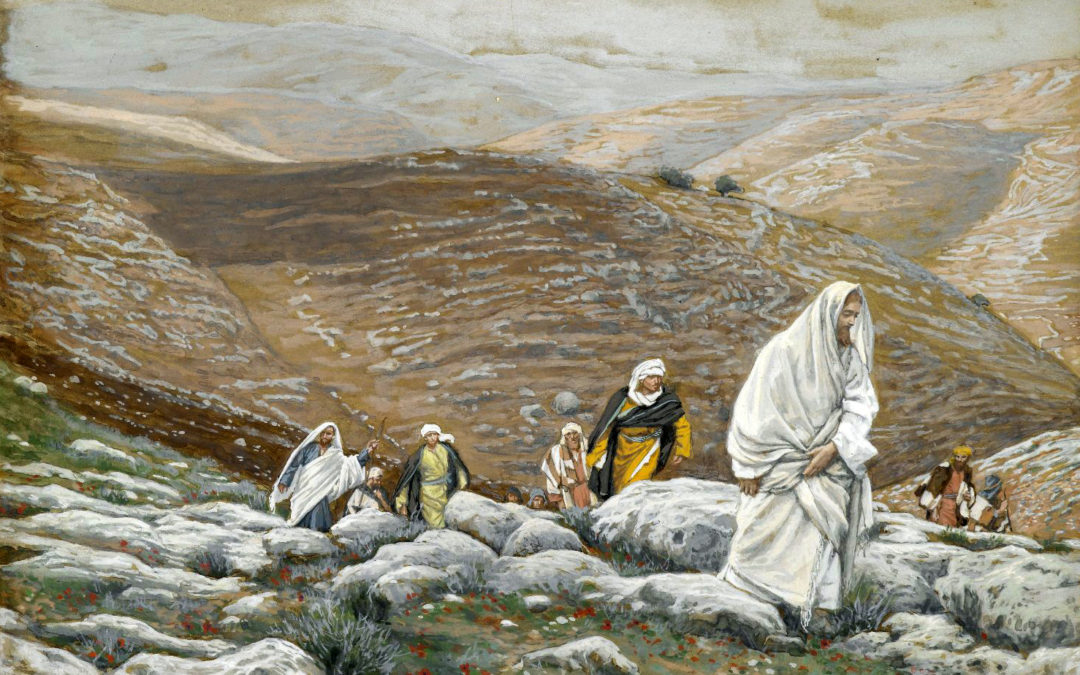In ‘You Welcomed Me,’ Saint Pope John Paul said:
“The Gospel brings salvation and also brings light even in the darkness of suffering because it conveys the love and mercy of God. In the end, it is the hunger for God that consumes the human being. Without the comfort which comes from God, humanity abandons himself. He remains in want and subsists without the source of life.”
“Come, O blessed of my Father, for I was poor, marginalized, and you welcomed me” (Matthew 25: 34-36).
What if a growing number of people on all sides of the Divide – Christians, Jews, Muslims – in Israel-Palestine respond to the higher calling of becoming a ‘light among nations,’ and act accordingly as responsible citizens in the community of men and women? President Abraham Lincoln refers to this human phenomenon as ‘seeking the better angels of our nature,’ They will want nothing more than full reconciliation with their neighbors.
When will the Israelis publicly apologize: “We can’t get away getting something for nothing? We can’t get away with murder? Let’s tear down the walls between us, share the land, and break bread together, and here is earnest money, restitution, a compensatory resolve to seal the deal.“
Will the people in the Region ever greet each other with, “Welcome home?” (*Chapter 1: A Divine Surprise; Sub-chapter: 1.16: The Better Angels of Our Nature; Page 42; Kindle Locations 718-724).
The Israeli-Palestinian saga needs a twist; paradigm shifts with new metaphors and uplifting stories with more openness, questioning the legitimacy and authority of deeply rooted dogmas. “These are tools that enable us to succeed going from darkness – the terrible realities we face – to the fantastic possibilities of tomorrow. We must start by rejecting the narratives we are told, to tell our own stories, becoming the storyteller rather than the person who is told what to do,” says journalist Rebecca Solnit.
The people of Israel – Palestine are intertwined for millennia. Isn’t it an ironic twist that many indigenous people in the Region, the Palestinians, are genetically connected to Ancient Israel? Their gene pools still exist. They have lived in the same Region from the beginning. Don’t people living contiguously beget others, one after the other? Palestinians could be just as much if not more Israelite than the Israeli-Jews; and, seven (7) percent of the Palestinians are Christians.
And, why does the defining feud of our times, enrapture the world? Could it be that our hearts belong to Zion, that we all carry the DNA of the original Israelites within our souls? We know how many seeds are inside an apple. Only God knows how many apples are in one seed.
It is time that the people of the Region greet each other with “Welcome Home.” Prolonging the struggle is “sadness silence can’t touch,” says American poet Dario Robleto.
We are all obligated to help build a bridge between the Israelis and the Palestinians. If peace is possible there, it is possible everywhere. (*Prologue: Let’s Get Radical – Be Kind; Sub-Section: Which Choice – Good, Bad, or Ugly; Page: 24; Kindle Locations 302-318)
There are good people. There are bad people. Good people on all sides can learn to get along. Bad people can’t. Of course, the good can become bad and vice versa because we all have the good, bad, and ugly within us.
Which trait we choose defines who we are.
Right now, and for too long, the bad people in the Region have hijacked the good people, a minority tyrannizing the majority. Most people – the majority – in the Region want peace. But it is fear that keeps them apart. (*Chapter 5: Abraham – A life Without Borders; Page 121; Kindle Locations 2375-2382)
Will Christians help or hinder, make the difference, or not?
Read more: ‘You Welcomed Me.’
Sincerely yours,
Building the Bridge Foundation, The Hague
Abraham A. van Kempen
Senior Editor
*‘Christian Zionism … Enraptured Around a Golden Cal” (2nd Edition)
e-book version $ 3.33
Paperback $33.30


Recent Comments